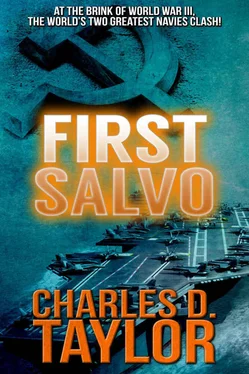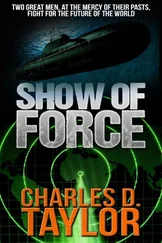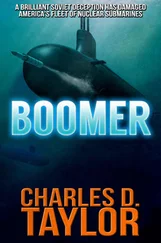He descended the cliffside, the path curving back and forth until he was on the narrow strip of beach. The wind blew in off the arctic water, lifting the foam off each crashing wave, depositing the icy droplets on his bare skin. He shivered, occasionally at first, then in spasms as the boat grew in size. He wrapped his arms around himself, rubbing his hands up and down his body. But it offered little warmth at this stage. He could no longer feel his hands.
As the boat drew closer, he thought about his episode with the Black Beret hours earlier. Was he delivering himself into the hands of the enemy? He wasn’t sure. But that wasn’t any Soviet submarine that he’d ever seen before. In the end, there was no telling who was at war with whom… who was an enemy and who was a friend. But whoever was about to land on the beach probably wanted to find him. Ryng had no choice but to believe that.
He was welded to the spot as he watched the little boat approach the beach. The operator, he saw, wore a black wetsuit; only his face remained uncovered. At about fifty feet from the water’s edge, he lifted the motor and picked up a paddle to finish the trip to shore.
What the man in the boat saw as he stepped into the surf to pull his boat the last few yards was an apparition of a military man. The man’s uniform was in tatters. His skin was covered with ugly colored bruises, and there seemed not a square inch where blood wasn’t either oozing or dried. The face was swollen, one eye half closed. Seemingly fixed to the spot, Ryng stared back unblinkingly, his hands rhythmically moving up and down his arms in what seemed an effort to keep warm.
“Commander Ryng?” the man inquired as he pulled the rubber boat out of the surf.
Ryng nodded, the rest of his body still planted in place, only his eyes moving over the man and then to his boat.
“Lieutenant Commander Hargraves, Number One, from Her Majesty’s submarine Churchill , sir. We thought you might be waiting for a ride.”
Again, Ryng nodded. This time he blinked his eyes, then rubbed them with his hands. “Her Majesty’s submarine?”
“Right you are, sir. And our captain wants to extend his gratitude for the whole of the U.K. when you come aboard. Ah — shall we go, sir?” he asked, pointing at the rubber boat. “War waits for no man,” he added.
“Are we at war?”
“Not officially, sir, at least it hasn’t been declared — though we’re told the Russians have moved into the Fulda Gap. But, as Admiral Harrow said, the war in Europe will start on D-Day. The war out here starts whenever one or the other wants it to, and our’s started yesterday.”
“And…” Ryng’s eyes turned to the black smoke on the horizon.
“ Illustrious , sir. Our group was the only one in the area when the Russians moved their submarine flotilla out of Murmansk. So it was us sent out to pick off what we could in case your mission was unsuccessful.”
“My mission?”
“Aye, sir. Our group was under heavy submarine attack, lost two escorts, and Illustrious took a hole yesterday. Admiral Harrow thought it best to explain how the whole NATO plan was developing, and he mentioned about the American SEAL team, I guess so none of us would feel we were the only ones out here.”
Ryng gestured toward the smoke. “More torpedoes?”
“There might have been one or two more. But it was missiles that did her in — from those big Russian bombers. They came in a couple of hours back, after Admiral Harrow was forced to commit his Harriers to that Russian base here, we were told. They weren’t sure whether or not you got your job done. Didn’t leave any real air defense. They were abandoning Illustrious when I left the submarine. Probably have to sink her soon’s everyone’s accounted for.” Ryng still hadn’t moved from the spot. “I think it best we get under way, sir. Our captain isn’t terribly excited about these shallow waters.”
Ryng moved stiffly toward the rubber boat.
He hoped his report would not be too late, that he and Denny and Harry Winters and all the rest had pulled it off.
Soviet doctrine was having a rough go of it that day. According to computer projections, refined by months’ worth of strategic alternatives, more Backfires should have penetrated the outer ring of Admiral Pratt’s defenses. The actual loss of the aircraft was of little concern to Moscow; it was the loss of the missiles these aircraft were to deliver that forced them to generate revised scenarios as the day progressed.
To achieve a satisfactory success ratio, the cruise missiles first had to survive approximately 250 miles through the antimissile defense of a battle group; even to arrive at that launch point, a fixed number of Backfires had to survive. The success of the first salvo would be based on the number of missiles that remained in the air through to the primary zone — the initial thirty to forty miles from the center of the battle group. That was why the leaders in Moscow were reprogramming even before their missiles were launched. The optimum number of bombers simply hadn’t made it to launch point.
Of equal concern were their subsurface forces. The computer could not generate revised projections in that sector, for the fate of the submarines would be unknown until it was all over. If the submarines were successful, if they penetrated the ASW barrier Wendell Nelson had established, then the diminished effect of the Backfire attack might possibly be balanced. The intelligence they had hoped for in this respect was limited, but a sufficient amount came through to Moscow to make them believe that enough of the NATO forces were still afloat to leave the situation in doubt.
Kharkov and her escorts were proceeding toward Kennedy ’s battle group at maximum speed when they sustained their heaviest attack that day. It was conducted by Kennedy ’s heavy-attack squadron of Intruders, a follow-up to the earlier attack from the Saratoga . Admiral Konstantin aboard Kharkov had expected the air attacks and was satisfied that the damage had been no worse. The carrier had taken five hits, only one considered serious, a two-thousand-pound bomb forward that had destroyed her cruise-missile capability. While fires still smoldered forward, she continued to operate her aircraft.
There had been a cruiser, two guided-missile destroyers, and two frigates lost, but they were expendable. What concerned Admiral Konstantin was the limited intelligence on the American submarines. He knew the Egyptians and the Israelis had allowed American attack submarines to hover in their protected waters. The loss of satellite intelligence had severely constrained his knowledge of their movements both ahead of and behind him. They could be a potent force, a possible turning point.
Now Konstantin was approaching the outer range of his surface missiles. Shortly he would bolster the air attack with his own missiles and, hopefully, those of his submarines — at least those still able to provide reinforcement.
The intelligence from NATO’s northern flank was disturbing. It was not so much the reports arriving in Moscow as the lack of them. Communications had been successfully jammed in that region for more than twenty-four hours. Reconnaissance satellites had been neutralized by an unexpected source, possibly laser-beam systems that the Russians had not anticipated. Murmansk’s northern submarine force instituted radio silence within five hundred miles of the American CAPTOR barrier. The only intelligence the Russians gained was from the underwater disturbance in this area. The CAPTORs had been activated — but by whom or what remained a mystery. American resupply convoys continued with minimum harassment. Moscow was aware that numerous American submarines were still operating in that area, which could mean that the Soviet force had been delayed, destroyed, or that an undersea battle would soon develop.
Читать дальше












